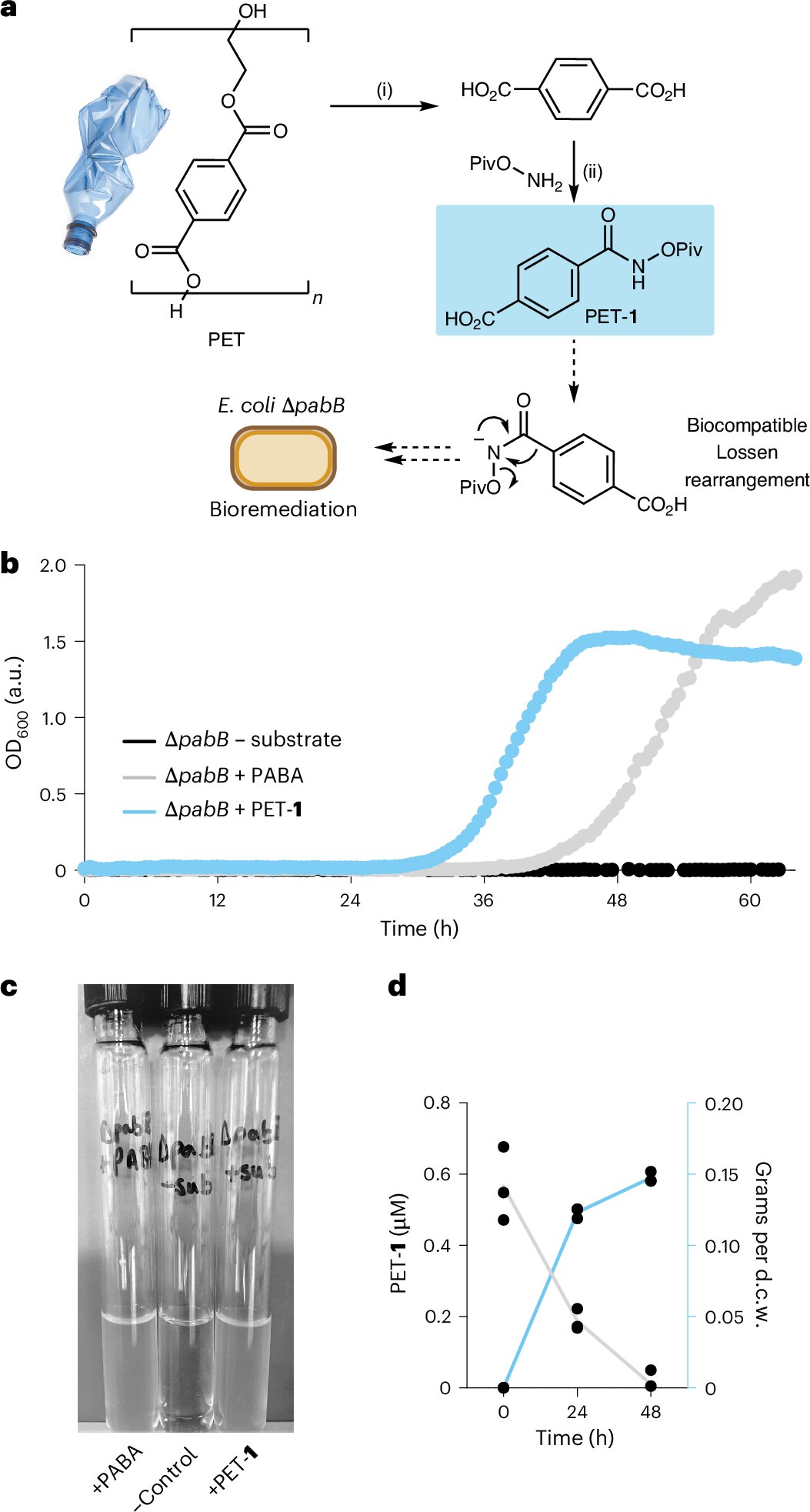
Upcycling plastic into painkillers: Microbes transform everyday waste into acetaminophen
How did your country report this? Share your view in the comments.
Diverging Reports Breakdown
Upcycling plastic into painkillers: Microbes transform everyday waste into acetaminophen
Paracetamol production could be revolutionized by the discovery that a common bacterium can turn everyday plastic waste into the painkiller. The new method leaves virtually no carbon emissions and is more sustainable than the current production of the medicine, researchers say. Thousands of tons of fossil fuels are used annually to power the factories that produce the painkillers, alongside other medicines and chemicals, making a significant contribution to climate change. The breakthrough addresses the urgent need to recycle a widely used plastic known as polyethylene terephthalate (PET), which ultimately ends up in landfill or polluting oceans. The strong, lightweight plastic is used for water bottles and food packaging, and creates more than 350 million tons of waste annually, causing serious environmental damage worldwide.
Substrate synthesis from PET plastic waste for bioremediation. Credit: Nature Chemistry (2025). DOI: 10.1038/s41557-025-01845-5
Paracetamol (acetaminophen) production could be revolutionized by the discovery that a common bacterium can turn everyday plastic waste into the painkiller. The new method leaves virtually no carbon emissions and is more sustainable than the current production of the medicine, researchers say.
Paracetamol is traditionally made from dwindling supplies of fossil fuels including crude oil. Thousands of tons of fossil fuels are used annually to power the factories that produce the painkiller, alongside other medicines and chemicals—making a significant contribution to climate change, experts say.
The breakthrough addresses the urgent need to recycle a widely used plastic known as polyethylene terephthalate (PET), which ultimately ends up in landfill or polluting oceans. The strong, lightweight plastic is used for water bottles and food packaging, and creates more than 350 million tons of waste annually, causing serious environmental damage worldwide.
PET recycling is possible, but existing processes create products that continue to contribute to plastic pollution worldwide, researchers say.
Published in Nature Chemistry, a team of scientists from the University of Edinburgh’s Wallace Lab used genetically reprogrammed E. coli, a harmless bacterium, to transform a molecule derived from PET known as terephthalic acid into the active ingredient of paracetamol.
Researchers used a fermentation process, similar to the one used in brewing beer, to accelerate the conversion from industrial PET waste into paracetamol in less than 24 hours.
Reaction discovery by auxotroph rescue. Credit: Nature Chemistry (2025). DOI: 10.1038/s41557-025-01845-5
The new technique was carried out at room temperature and created virtually no carbon emissions, proving that paracetamol can be produced sustainably. Further development is needed before it can be produced at commercial levels, the team says.
Some 90% of the product made from reacting terephthalic acid with genetically reprogrammed E. coli was paracetamol.
Experts say this new approach demonstrates how traditional chemistry can work with engineering biology to create living microbial factories capable of producing sustainable chemicals while also reducing waste, greenhouse gas emissions and reliance on fossil fuels.
Professor Stephen Wallace, lead author, UKRI Future Leaders Fellow and Chair of Chemical Biotechnology, School of Biological Sciences, University of Edinburgh, said, “This work demonstrates that PET plastic isn’t just waste or a material destined to become more plastic—it can be transformed by microorganisms into valuable new products, including those with potential for treating disease.”
Ian Hatch, Head of Consultancy at EI, said, “We are bringing in exceptional companies like AstraZeneca to work with Stephen and others at the University to translate these cutting-edge discoveries into world-changing innovations.
“Engineering biology offers immense potential to disrupt our reliance on fossil fuels, build a circular economy and create sustainable chemicals and materials, and we would invite potential collaborators to get in touch.”
The research was funded by biopharmaceutical company AstraZeneca.
More information: Nick W. Johnson et al, A biocompatible Lossen rearrangement in Escherichia coli, Nature Chemistry (2025). DOI: 10.1038/s41557-025-01845-5 Journal information: Nature Chemistry
Source: https://phys.org/news/2025-06-upcycling-plastic-painkillers-microbes-everyday.html
